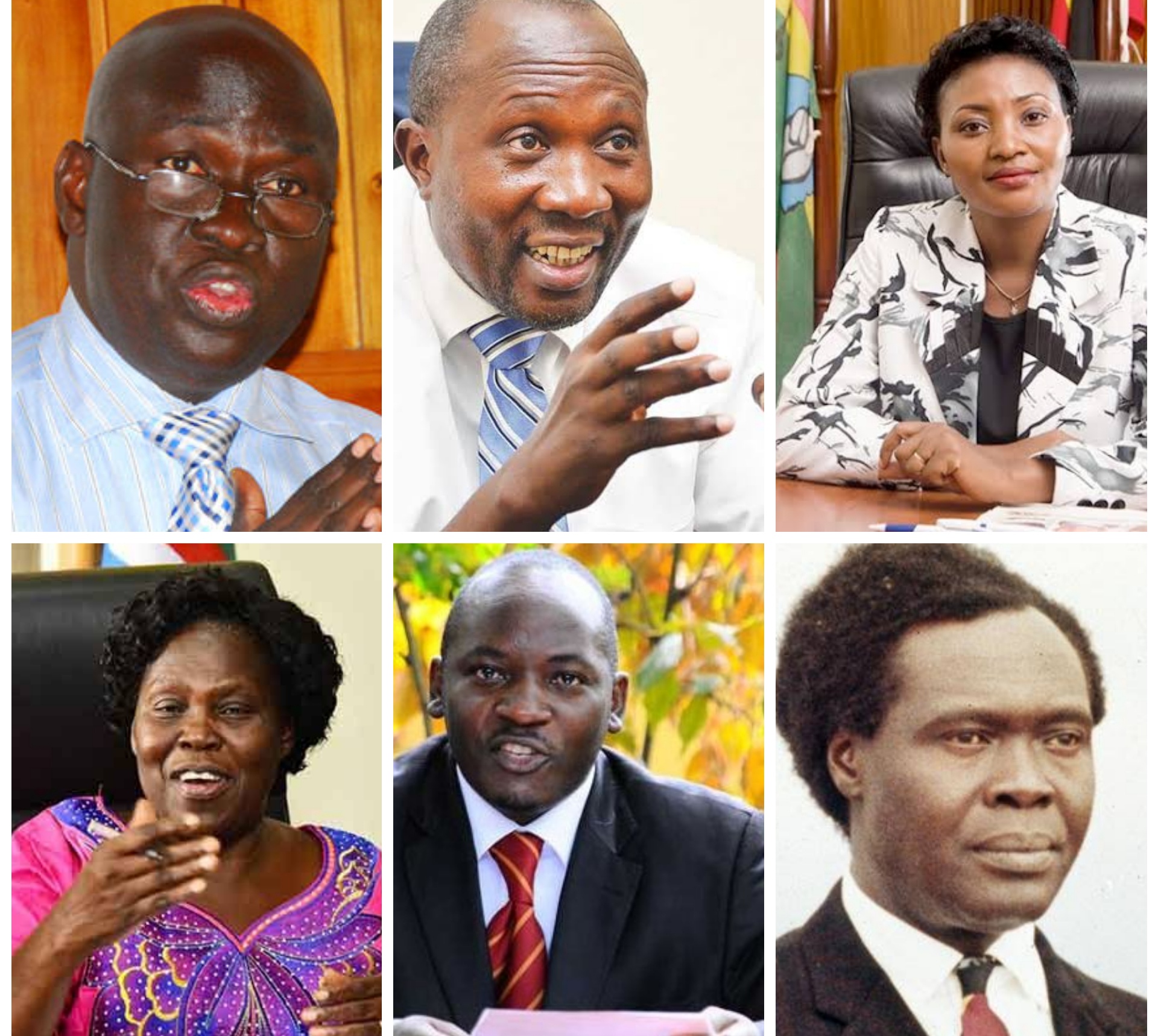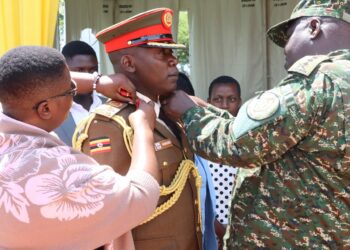The Leader of Opposition is a title traditionally held by a member of the largest opposition political party in parliamentary democracy.
In the Westminster system, the Leader of the Opposition is also seen as the alternative Prime Minister, Premier, First Minister, or Chief Minister who heads a rival alternative government known as the Shadow Cabinet or Opposition Front Bench.
In this system, the Leader of Opposition (LOP) chairs meetings in which the opposition discusses policies and examines bills, presents alternative policies to those of the government, selects members of the opposition to be shadow ministers, leads the shadow Cabinet and acts as the chief opposition spokesperson.
In Uganda, the position of LOP has been on and off due to changes of governments and authoritarian rulers the country has had.
The position came to reality in Uganda in the year 1958 when the first direct elections to the Legislative council (Legco) were held where the position of “Leader of Opposition” was formally created in the same institution.
And here are the 10 Ugandans who have held the position of Leader of Opposition:
1.Milton Obote (April 1961-April 1962)
In March 1960, Obote became the first president of the Uganda People’s Congress (UPC) which was born from the merger of the Uganda National Congress (UNC) and the Uganda People’s Union (UPU) which had been established in 1959 by some members of the Legco. This event further strengthened Obote’s position in national politics. So, after the April 1961 elections which enabled the Legco to be transformed into the “National Assembly” and the Democratic Party (DP) to get into power, Obote became the first Ugandan Leader of Opposition. On 1 March 1962, Ben Kiwanuka, the DP leader became the first Prime Minister of Uganda.Unfortunately, two months later, the DP lost power in the April 1962 elections which Obote’s UPC won with the assistance of Kabaka Yekka (KY) Party in Buganda. In May 1962, Obote became the second Prime Minister and the National Assembly was converted into a Parliament. Subsequently, Milton Obote became the first executive President of Uganda from 1966 until 1971.
2. Basil Kiiza Bataringaya (1962-1964)
During the first four years since independence (1962-1966), DP was the only party on the opposition benches in Parliament and it was not only fighting against the injustices by the Uganda Peoples Congress-Kabaka Yekka coalition government but also fighting for its survival.
The Leader of Opposition was Basil Kiiza Bataringaya from Bushenyi who was also the Secretary-General of DP.
However, after the abrogation of the 1962 Constitution in Parliament and the death of the UPC-KY alliance, in May 1964, Bataringaya who was the leader of opposition crossed over to UPC with a number of his fellow DP Members of Parliament, leaving the opposition side heavily depleted. He is the first famous politician in Uganda to defect to another party.
3. Alex Latim (1964-1971)
After the departure of Bataringaya, Alex Latim from Gulu became the third Leader of Opposition replacing Bataringaya, He also replaced him as the DP Secretary-General.
During his years, Latim together with his fellow DP colleagues and some of the KY and UPC members who had crossed to the Opposition side continued to fight bravely for the survival of the Opposition. Among other things, the Opposition put up a spirited fight against the harsh detention laws which had been imposed on the country, emerging corruption in the Obote regime and development towards the one-party rule. Latim held this position up to 1971 when General Field Marshal Idi Amin took over.
For over 8 years under the leadership of General Idi Amin had grabbed power in January 1971. Uganda had no leader of the opposition since Gen. Amin preferred to rule through decrees and regular military announcements. As a result, most of the UPC and DP politicians went underground or kept a very low profile, while others fled into exile. Obote himself fled to Tanzania.
4. Dr. Paul Kawanga Ssemogerere (December 1980-July 1986)
Following the overthrow of the Amin’s regime in April 1979 by Tanzanian troops, Parliament was restored under the name ‘National Consultative Council (NCC)’ whose responsibilities not only included enacting new laws for the country but also supervising the executive systematically to prevent the reappearance of dictatorial rule.
In 1980 December, the first post-independence elections were held during which Obote and his UPC were voted into power. Although the elections were hotly disputed, Dr. Paul Kawanga Ssemogerere, who was by then the new DP Leader and his fellow DP MPs reluctantly accepted to it in the Opposition benches. Dr. Ssemogerere thus became Uganda’s fourth Leader of Opposition.
In his term, Ssemogerere and other members of the opposition vociferously condemned the escalation of Uganda’s external debt, general insecurity and violation of basic human rights of ordinary Ugandans.
5. Prof. Morris Ogenga Latigo (2006-2010)
After overthrowing Obote by a military coup in 1985, General Tito Okello Lutwa closed Parliament. It was re-opened in February 1986 under a new name, “National Resistance Council (NRC)”, a month after the NRM had grabbed power. There was no official Opposition in the NRC. The NRC was originally the supreme policy organ of the NRM during the bush war of 1981 to 1986. it is the same group that constituted itself into a Parliament, maintaining the name NRC.
Until 2005 when the referendum was held and the majority of voters preferred a return to multiparty politics. The 2006 elections were thus the first multiparty elections, 20 years after the NRM takeover.
In those elections, the Forum for Democratic Change (FDC) became the main opposition party. Subsequently, Prof. Morris Ogenga Latigo from Acholi became the fifth Leader of Opposition in the 8th Parliament.
Latigo faced a lot of challenges since he led the Opposition in the House at a time when politicians in Uganda were still suffering a strong hangover of the Movement System in which members operated on individual merit. Transforming from that system into the loyalty and discipline that multiparty-ism demanded was difficult.
6. Nathan Nandala Mafabi (2011-2013)
After the February 2011 Presidential and Parliamentary elections, elections Prof. Latigo did not make it to the 9th Parliament giving away to Nathan Nandala Mafabi who became the seventh Leader of Opposition, six years after the return of multiparty politics under Museveni’s regime.
In the two years of his tenure, Mafabi scored some successes especially in the legislative product among which were the two hotly contested Bills, i.e. the Public Order Management Bill and the Anti-Money Laundering Bill. Unfortunately, he was not able to complete a full five-year term in office.
7. Philip Wafula Ogutu (2013-2015)
He replaced Mafabi, and he was appointed was under a hot debate within his party but the Party President by then Gen. Mugisha Muntu decisively appointed him throwing Mafabi out. Ogutu held this position until June 2016 when he handed over it to Winnie Kiiza
8. Winifred Kiiza (2015-2018)
In May 2016, she was appointed Leader of Opposition in the parliament of Uganda, making her the first woman to assume that position in the history of the country. In her tenure, she witnessed Parliament being hijacked by the special forces during the constitutional amendments, she is remembered as one of the iron ladies that Parliament has ever had.
9. Betty Aol Ochan (2018-2021)
She was appointed by Patrick Amuriat Oboi, the president of Forum for Democratic Change (FDC) on 3rd August 2018 and she has served up the end of the 10th Parliament.
10. Mathias Mpuuga (2021-present)
He was appointed by the president of the National Unity Platform (NUP) Robert Kyagulanyi Ssentamu on 28th May 2021. Mpuuga is the first Leader of Opposition not coming from FDC since 2006. He is also the second leader of the opposition from the central regime, the first one was Ssemogerere.
Do you have a story in your community or an opinion to share with us: Email us at editorial@watchdoguganda.com












